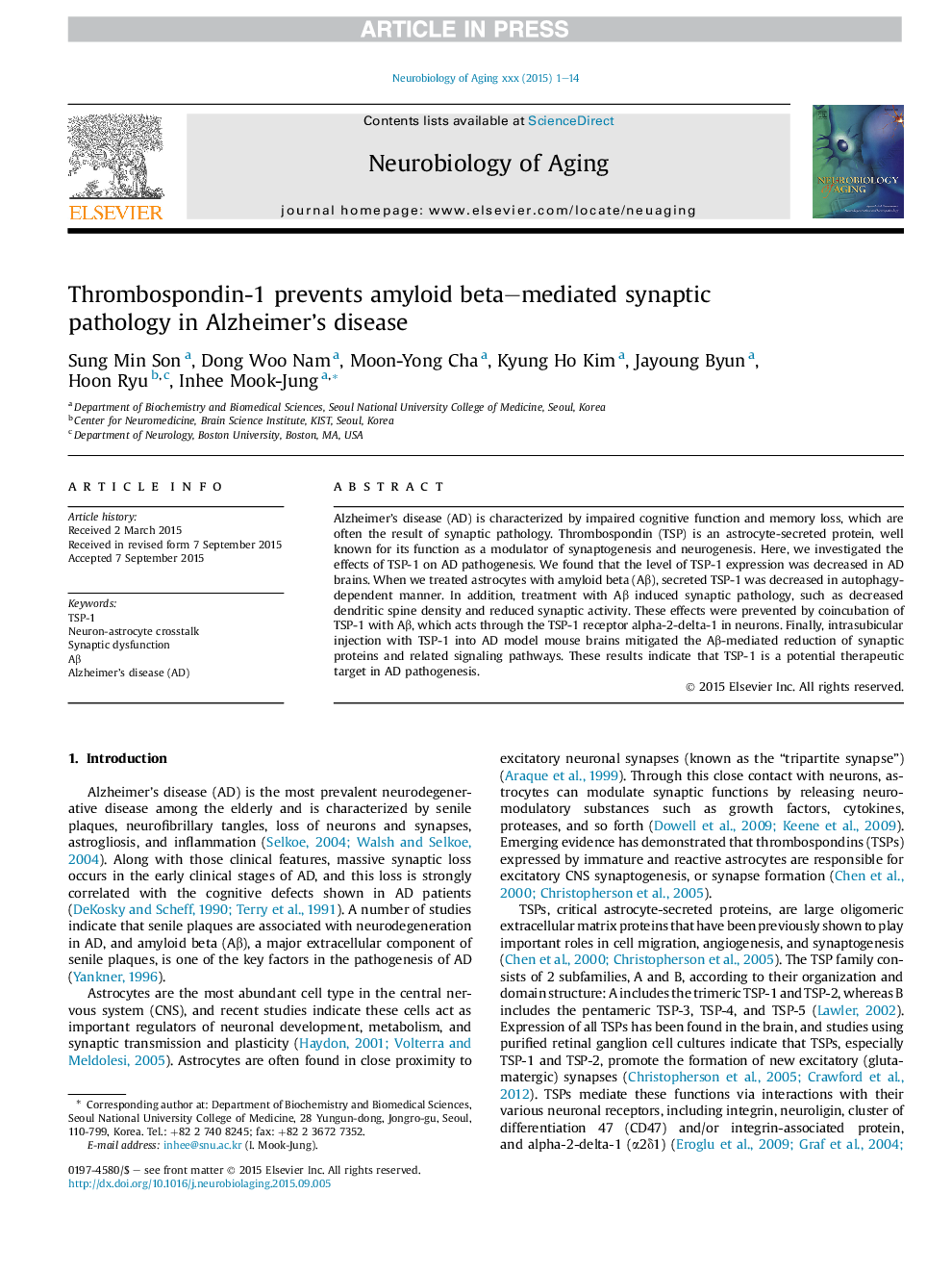| Article ID | Journal | Published Year | Pages | File Type |
|---|---|---|---|---|
| 6803760 | Neurobiology of Aging | 2015 | 14 Pages |
Abstract
Alzheimer's disease (AD) is characterized by impaired cognitive function and memory loss, which are often the result of synaptic pathology. Thrombospondin (TSP) is an astrocyte-secreted protein, well known for its function as a modulator of synaptogenesis and neurogenesis. Here, we investigated the effects of TSP-1 on AD pathogenesis. We found that the level of TSP-1 expression was decreased in AD brains. When we treated astrocytes with amyloid beta (Aβ), secreted TSP-1 was decreased in autophagy-dependent manner. In addition, treatment with Aβ induced synaptic pathology, such as decreased dendritic spine density and reduced synaptic activity. These effects were prevented by coincubation of TSP-1 with Aβ, which acts through the TSP-1 receptor alpha-2-delta-1 in neurons. Finally, intrasubicular injection with TSP-1 into AD model mouse brains mitigated the Aβ-mediated reduction of synaptic proteins and related signaling pathways. These results indicate that TSP-1 is a potential therapeutic target in AD pathogenesis.
Related Topics
Life Sciences
Biochemistry, Genetics and Molecular Biology
Ageing
Authors
Sung Min Son, Dong Woo Nam, Moon-Yong Cha, Kyung Ho Kim, Jayoung Byun, Hoon Ryu, Inhee Mook-Jung,
